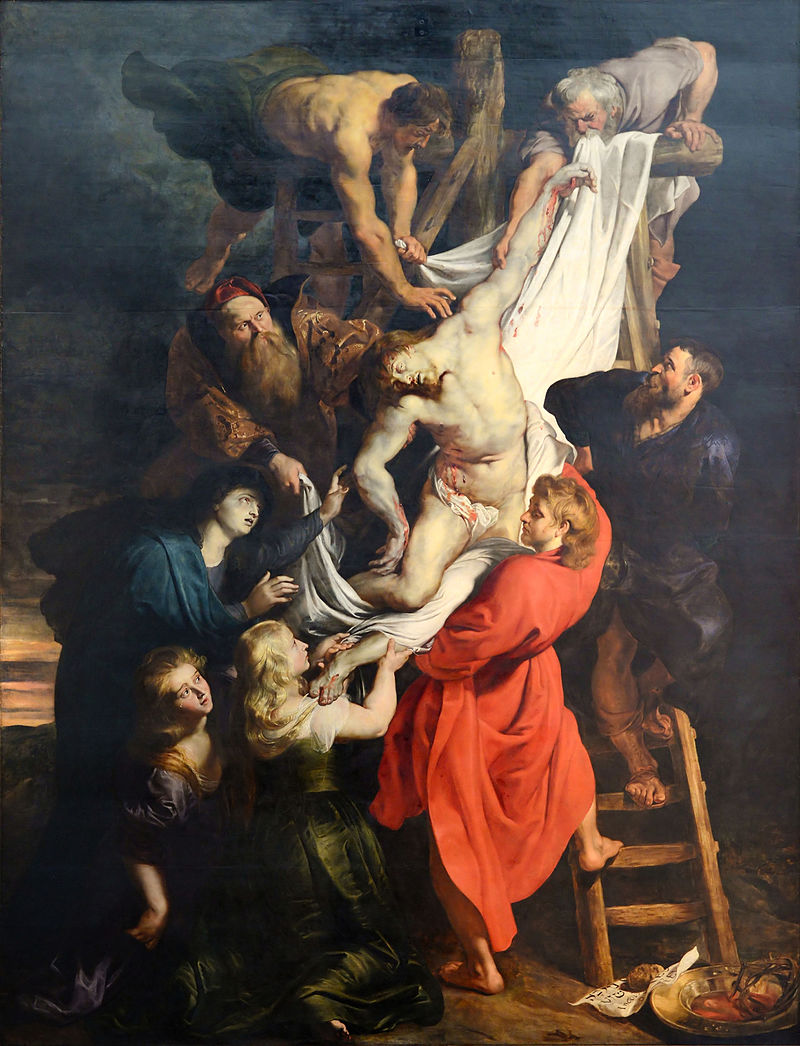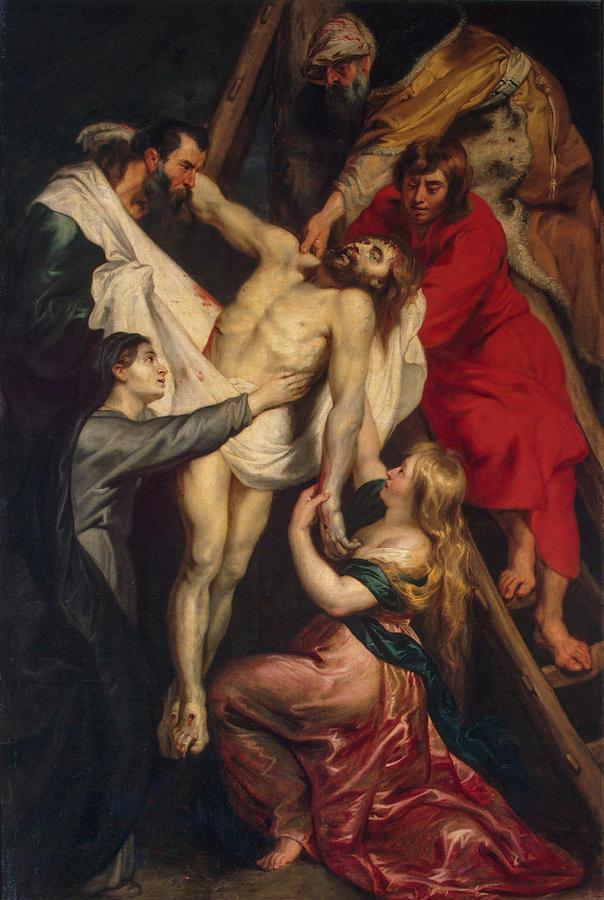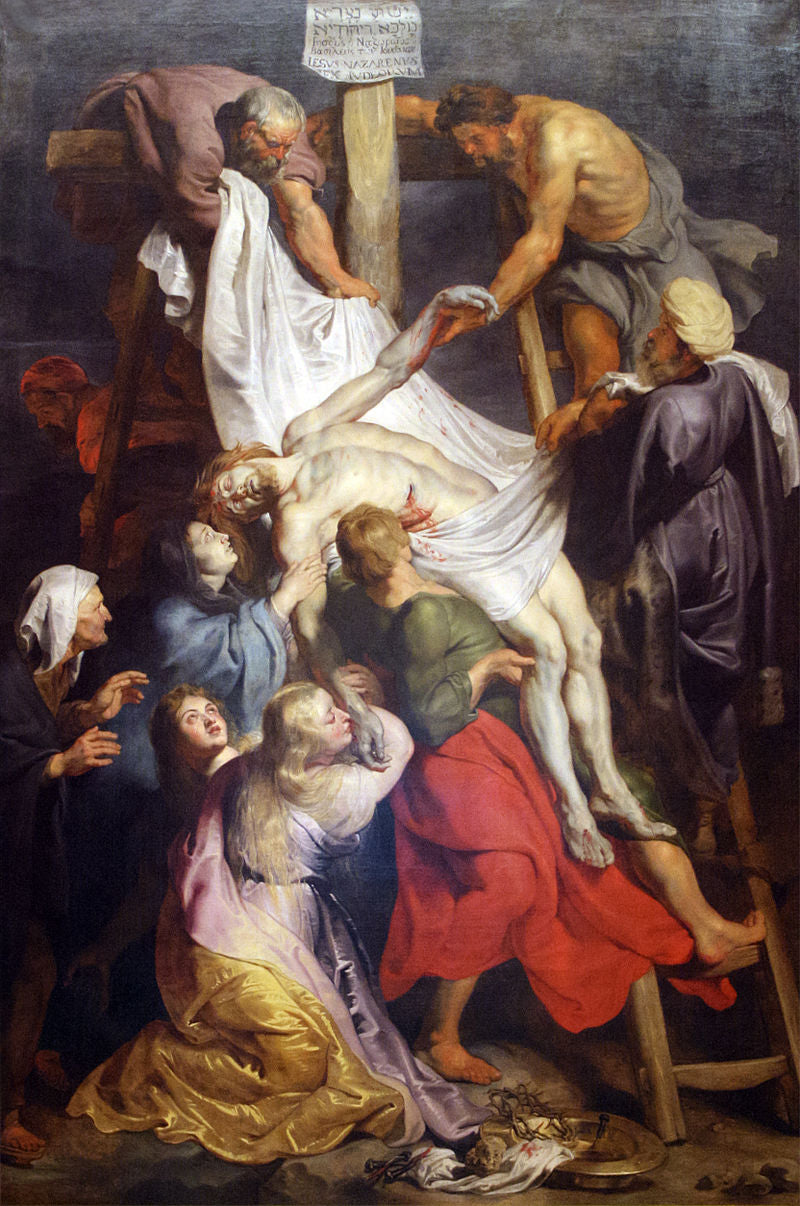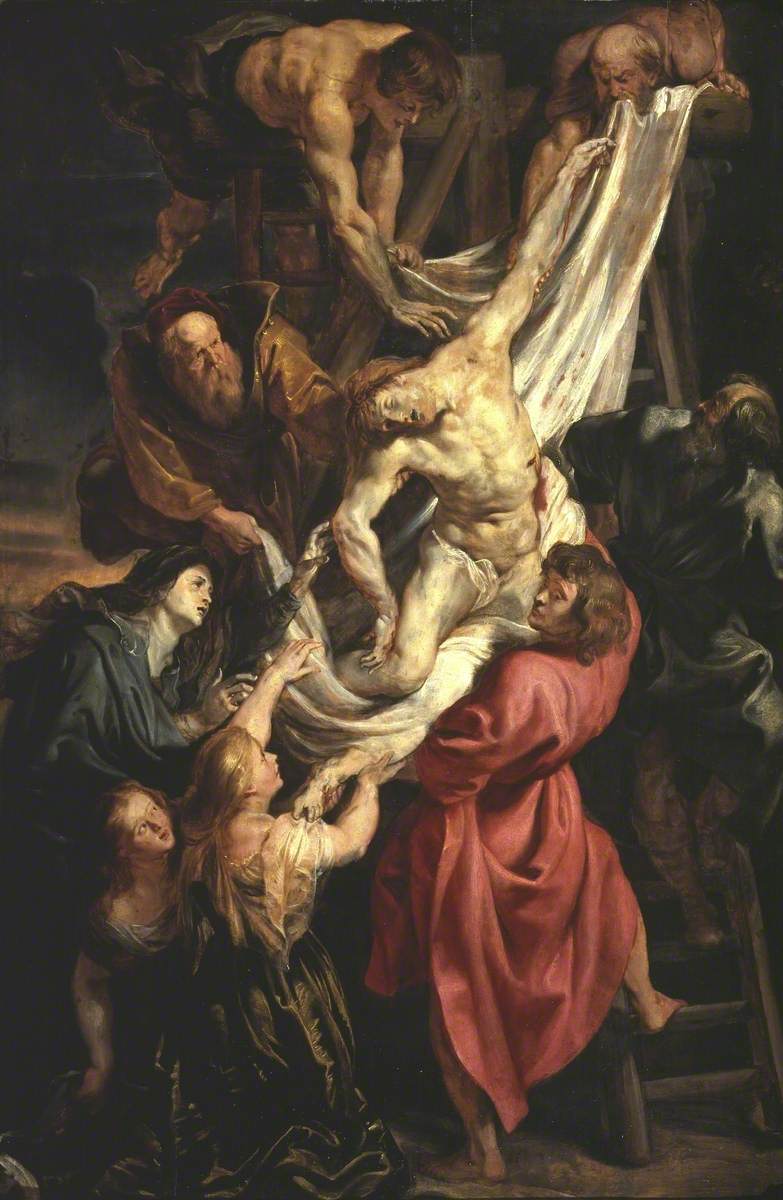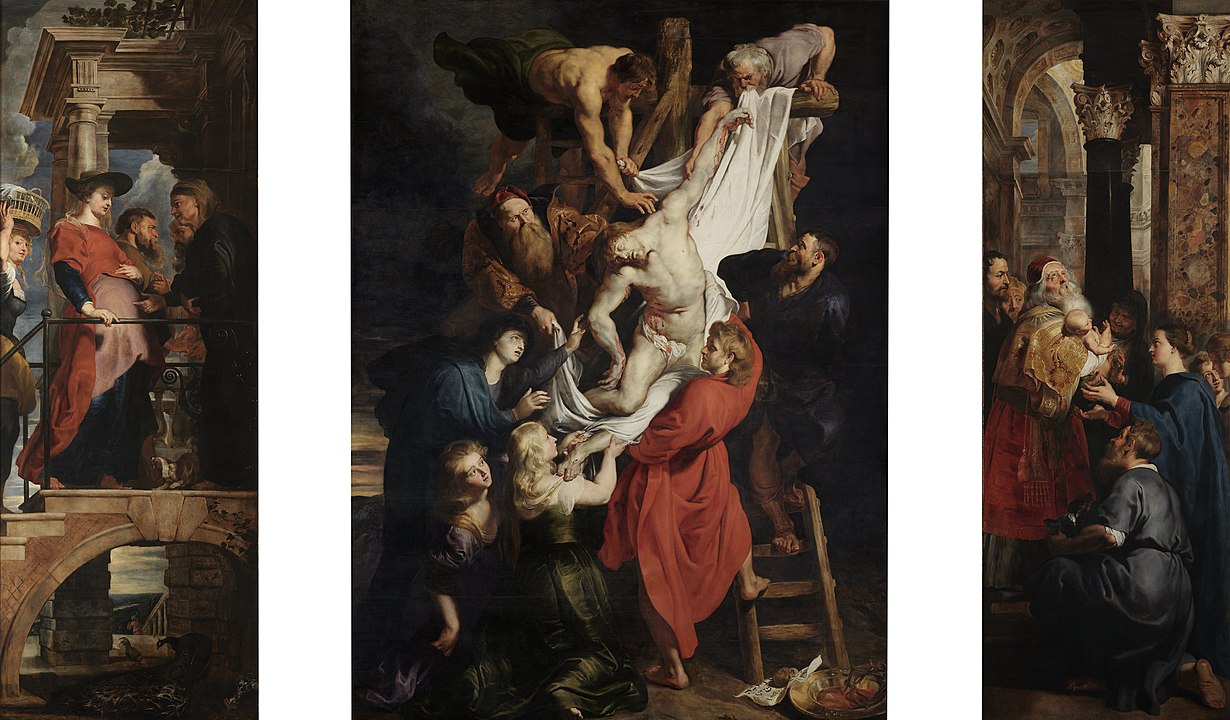Description
Peter Paul Rubens's The Descent from the Cross is an astonishingly powerful depiction showing the body of Jesus being removed from the cross after his crucifixion, a theme Rubens returned to repeatedly in his brilliant career.
Rubens painted three or more versions that explore the same theme.
Size of the central piece of the Triptych version: 420.5 × 320 cm
Later versions: 297 x 200 cm
With this truly historic work, Rubens declares himself to be a completely original artist, but still under some influence from the great Italian masters and masters.
The painting is the centerpiece of a triptych. The first panel shows a pregnant Mary visiting her cousin Elizabeth, and the last panel shows a baby Jesus being presented in the Temple.
But the central panel, The Descent from the Cross, is typical Rubens powerhouse. There are eight figures in the scene along with the exhausted figure of Jesus, who is hideously ash-white and bloody. He is being lovingly removed with the help of workmen on two ladders, and a blonde Mary Magdalene below, whose shoulder is supporting Jesus' foot.
Behind Mary Magdalene is Maria Cleopas in purple, and above her is the Virgin Mary, dressed more simply in purple. The mother of Jesus stretches out her arms in pain towards her fallen son.
The uncle of Jesus, José de Arimathea and Nicodemus are also represented in the painting. They are positioned facing each other in the middle of the stairs on either side of Jesus. To the right of Mary Magdalene on the ground, but with one foot on the ladder, is Saint John, who is dressed in bright red robes.
The white body of Jesus and his white shroud, along with the red of Saint John's garments, contrast vividly with a setting usually depicted in darker colors. The sky is dark, eerie and ominous.
Rubens completed this triptych between 1612 and 1614. It was commissioned as an altarpiece for the Cathedral of Our Lady in Antwerp, Belgium. It is an oil on panel creation, and although the style is considered baroque, it is clearly influenced by the Venetian school.
The Descent from the Cross still adorns the Cathedral of Our Lady in Antwerp today, and should be considered one of the most valuable masterpieces in the world.
Rubens painted three or more versions that explore the same theme.
Size of the central piece of the Triptych version: 420.5 × 320 cm
Later versions: 297 x 200 cm
With this truly historic work, Rubens declares himself to be a completely original artist, but still under some influence from the great Italian masters and masters.
The painting is the centerpiece of a triptych. The first panel shows a pregnant Mary visiting her cousin Elizabeth, and the last panel shows a baby Jesus being presented in the Temple.
But the central panel, The Descent from the Cross, is typical Rubens powerhouse. There are eight figures in the scene along with the exhausted figure of Jesus, who is hideously ash-white and bloody. He is being lovingly removed with the help of workmen on two ladders, and a blonde Mary Magdalene below, whose shoulder is supporting Jesus' foot.
Behind Mary Magdalene is Maria Cleopas in purple, and above her is the Virgin Mary, dressed more simply in purple. The mother of Jesus stretches out her arms in pain towards her fallen son.
The uncle of Jesus, José de Arimathea and Nicodemus are also represented in the painting. They are positioned facing each other in the middle of the stairs on either side of Jesus. To the right of Mary Magdalene on the ground, but with one foot on the ladder, is Saint John, who is dressed in bright red robes.
The white body of Jesus and his white shroud, along with the red of Saint John's garments, contrast vividly with a setting usually depicted in darker colors. The sky is dark, eerie and ominous.
Rubens completed this triptych between 1612 and 1614. It was commissioned as an altarpiece for the Cathedral of Our Lady in Antwerp, Belgium. It is an oil on panel creation, and although the style is considered baroque, it is clearly influenced by the Venetian school.
The Descent from the Cross still adorns the Cathedral of Our Lady in Antwerp today, and should be considered one of the most valuable masterpieces in the world.

